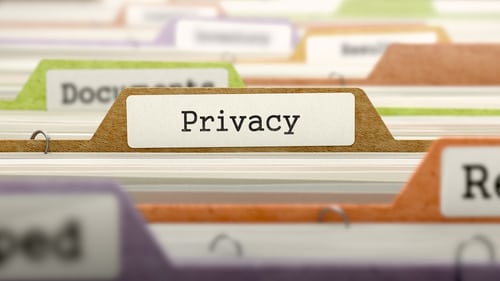The Records Company goes to great lengths to keep our clients’ records secure, from the moment we receive a request for records through delivery and storage of sensitive materials. We use state-of-the-art technology to secure our online portal and our servers. All our client specialists undergo rigorous training in HIPAA compliance.
Penalties can be steep for HIPAA violations, but our main reason for carefully safeguarding our clients’—and your clients’—privacy is much simpler: It’s the right thing to do. We handle many records each day that aren’t governed by HIPAA regulations, such as employment records and police reports. We treat these records with the same care and consideration as medical records whose privacy is mandated by federal law because we respect the trust our clients place in our hands every day.
HIPAA Beyond the Portal
We know you take your clients’ privacy as seriously as we do. We emphasize security because it’s the center of our infrastructure and business model. In a law firm, especially a small or mid-sized firm, it may be more difficult to assess your security needs and balance them with the other demands of the day.
HIPAA applies to “business associates” of patients, which means legal representatives are bound to the same compliance as any other entities who handle medical records. HIPPA regulations also cover records that contain medical information, such as medical liens, toxicology reports, autopsy reports, and EMS reports.
Because law firms use and store huge quantities of personal information about their clients, they are appealing targets for hackers. The first step in making sure you’re compliant with privacy regulations is to conduct a risk assessment that will allow you to tailor a security plan for your firm’s specific needs.
Securing Technology
The starting point of any security plan for law firms or any other organization should be an assessment of your technology resources. If you’re not especially savvy about technology, it’s easy to get overwhelmed, but it’s important to look at the systems you’re using and other aspects of your process for handling data in the firm.
There are also some simple security measures you may be overlooking that are easily remedied. For example, all your emails should be encrypted if they aren’t already. Two-factor authentication is another easy way to unauthorized use of login information. When you’re dealing with health information, boost security by using access logs. Finally, as much as you may love your virtual assistant, it’s critical to keep sensitive information away from Siri and Alexa.
Securing People
Ensuring your technology is secure will take you far against hackers, but you also need to be sure your staff and associates understand their obligations in HIPAA and privacy compliance. HIPAA violations often happen when people look at files they shouldn’t see or talk about information they shouldn’t talk about. Many of these violations take place in the healthcare sector, but if you’re handling health records for any reason, it’s worthwhile to take steps to minimize human error. Setting up a clear workflow and policies governing handling sensitive information is one step. Providing your staff with training in HIPAA compliance and procedures is another important measure.
We’re all concerned about where our data is kept and where it’s going. Demonstrating your commitment to client privacy and data security may require an investment of time and resources at the outset, but these measures will prove worthwhile in the long run. Not only will you avoid the headaches associated with a security breach, but you’ll show clients a commitment to their well-being that will create a more productive and sustainable business model.
